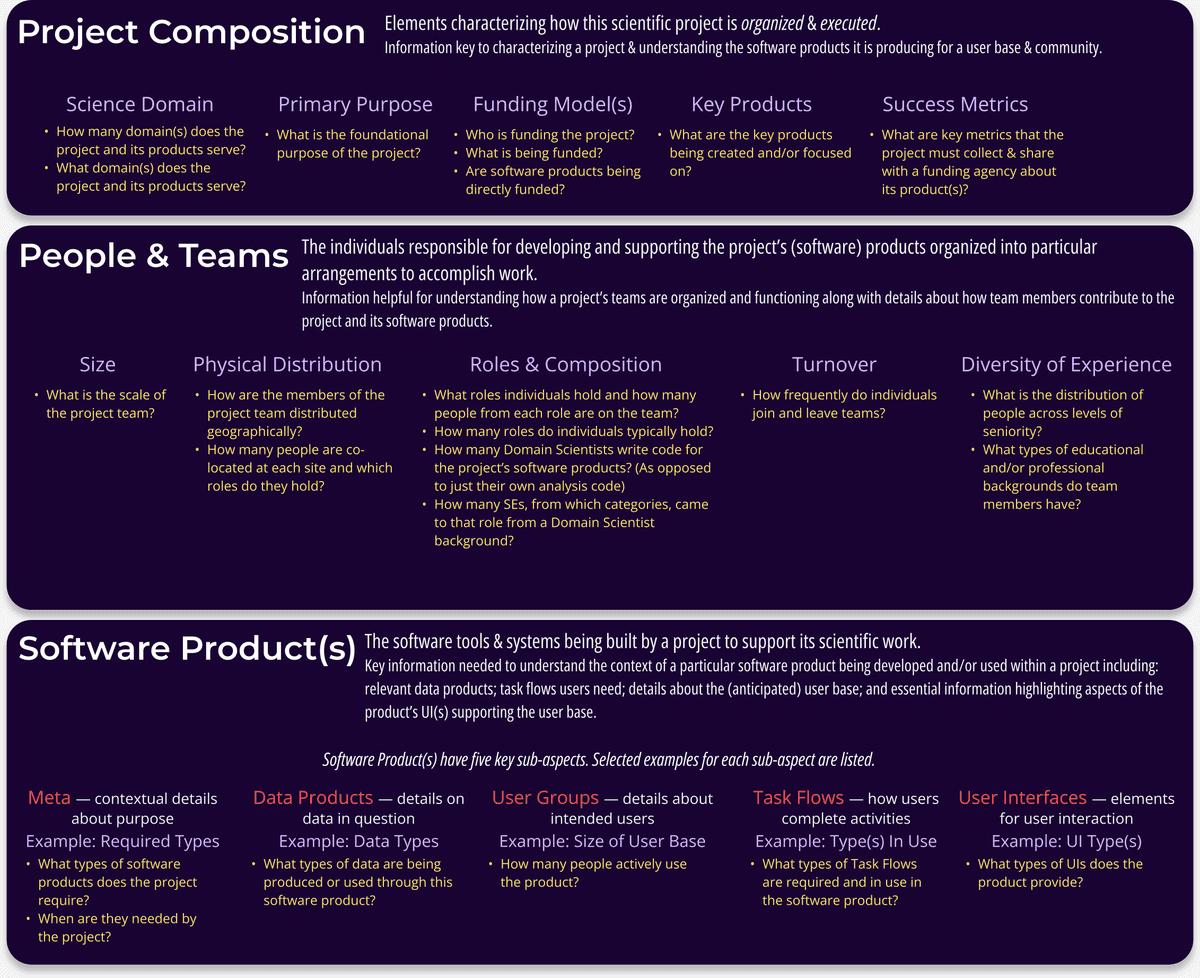Note: Active Research
This is an initial verison of the STRUDEL Typology and subject to continued research.
Overview
The STRUDEL Typology is a conceptual tool for categorizing elements of scientific projects building and using software products. The typology helps identify and compare common activities in scientific work that should be considered when focusing on requirements, user experience, software sustainability, and so on for software. The focus on software production and use, especially its UX and sustainability, is a key distinction and bias of the STRUDEL Typology. Three interconnected elements shape this typology:
- Organizational issues – The bounding, bedrock contexts shaping work at hand
- Social concerns — The dynamics of people arranged into teams doing work
- Technical matters — The details shaping software product(s) and affecting a user’s experience
Motivation
The STRUDEL Typology enables a user to systematically analyze and compare diverse scientific projects. This analysis helps surface commonalities that impact user experiences and sustainability of the software being produced and used.
Application
The STRUDEL Typology is constructed to be used by individuals engaged in scientific project planning or sofware development who needs help thinking through current or potential challenges in their work.
Initial Typology Dimensions

